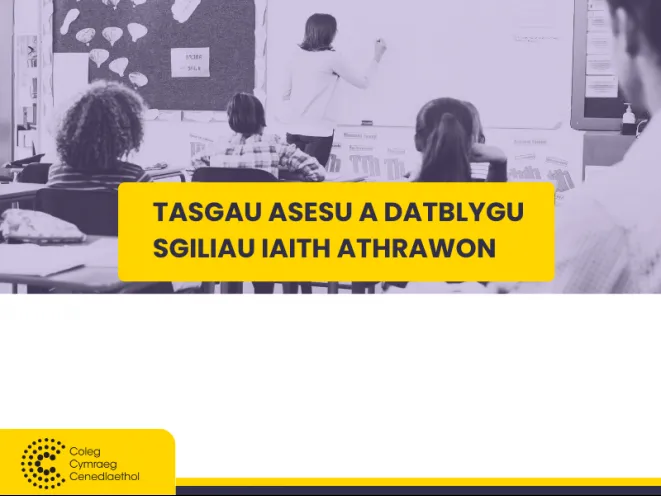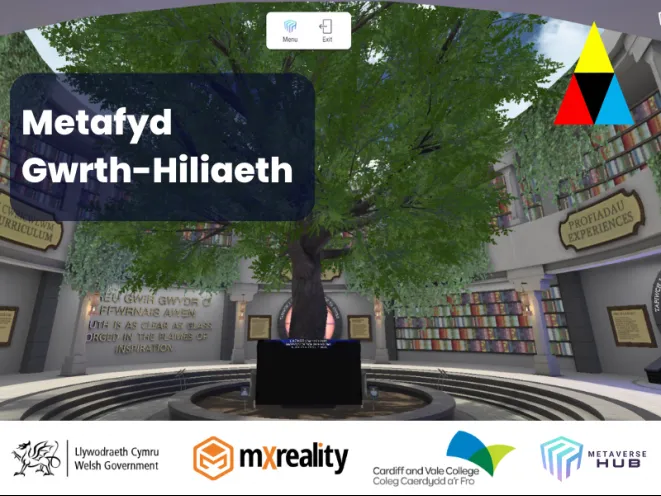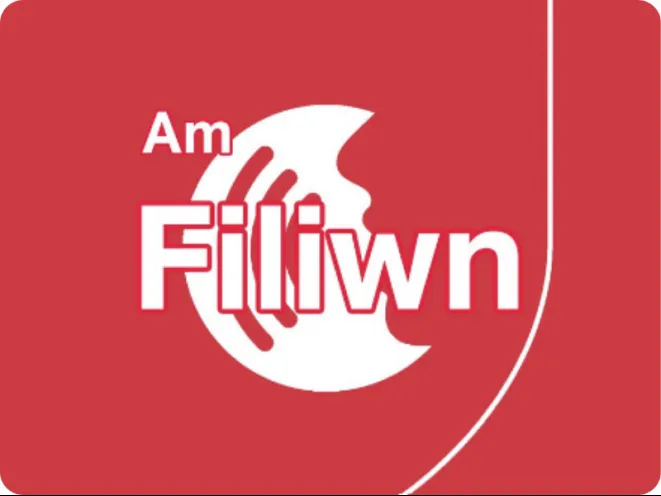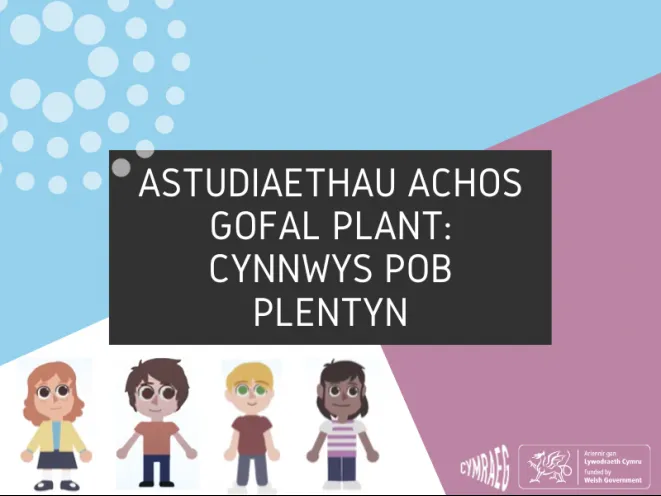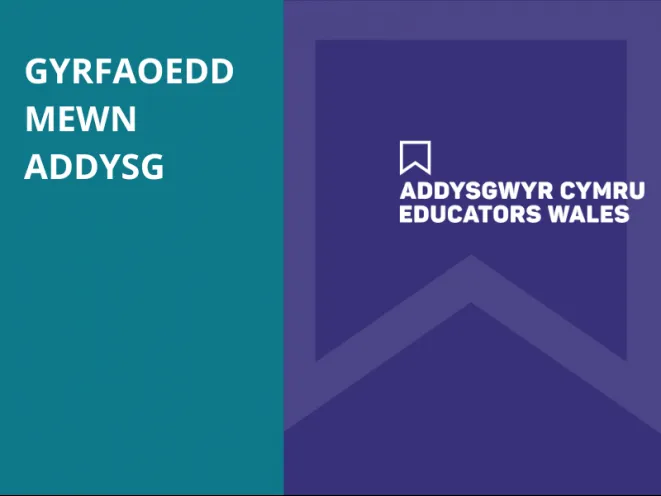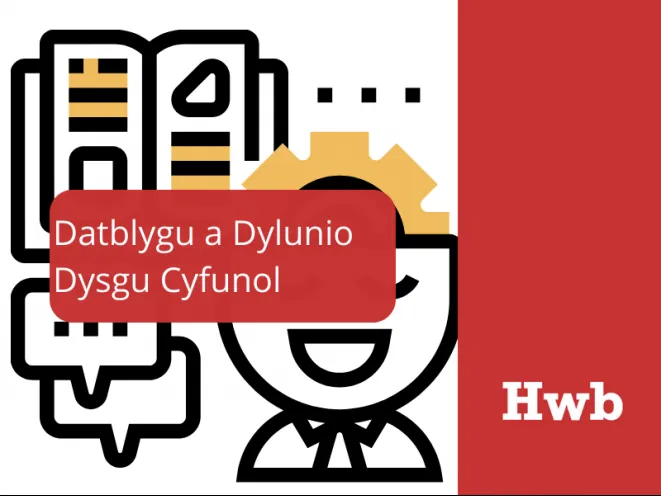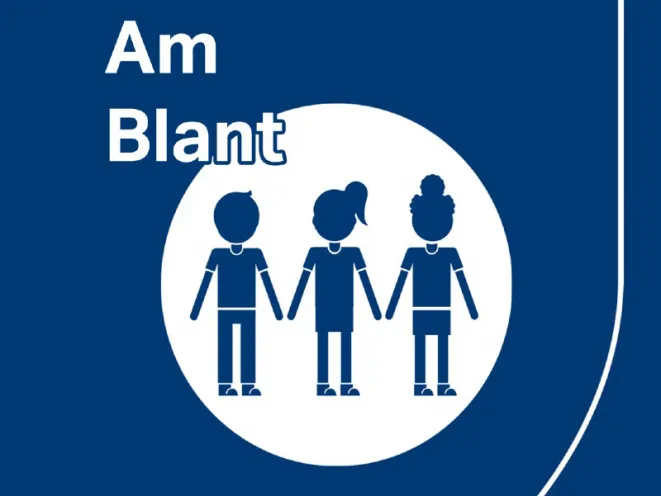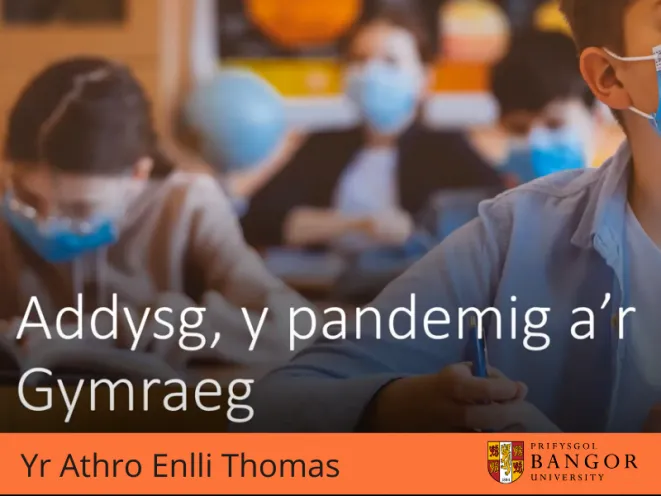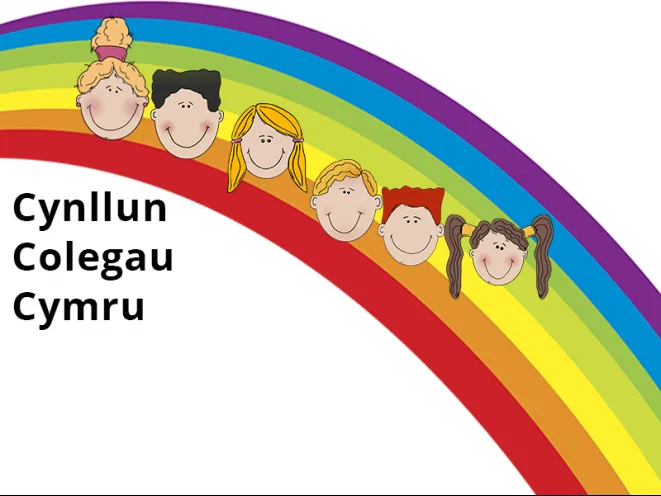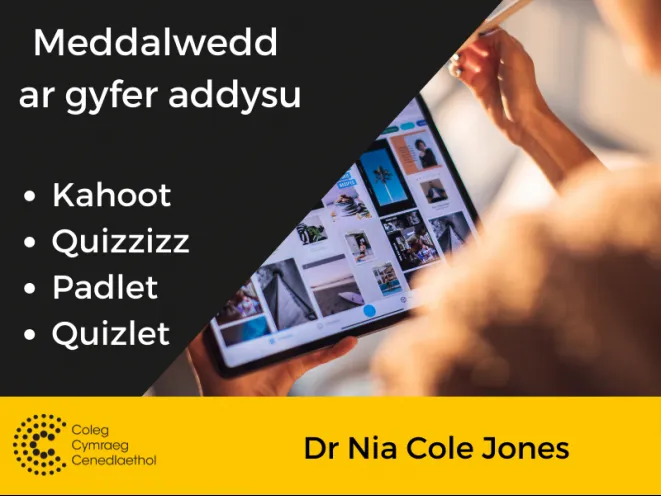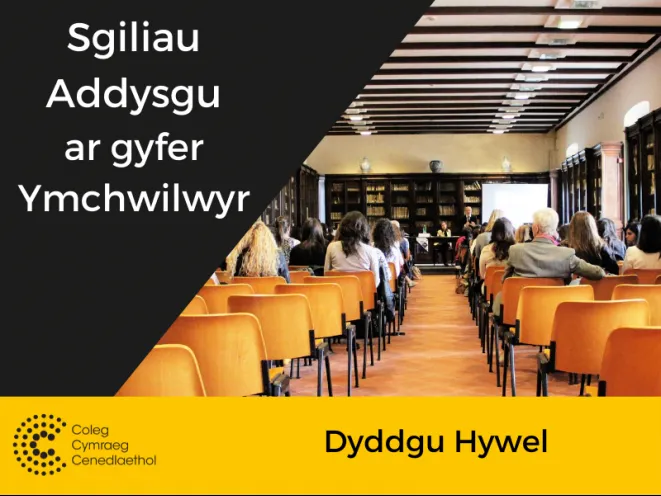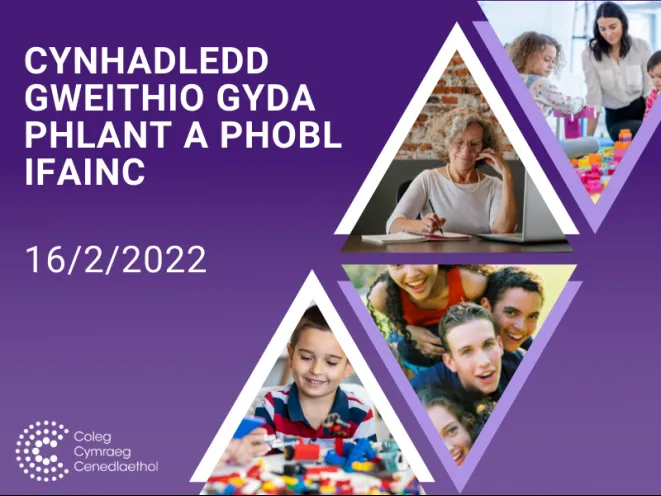This is a collection of tasks that can be used to develop and assess the language skills of education practitioners against the Language Competency Framework for Education Practitioners. The collection includes tasks for each skill and each level within the Framework. There is a PDF booklet for each level, containing all of the tasks for that selected level. In addition, the tasks are available to download individually in the form of Word documents. If the links do not open the document in a new tab, then the document will have downloaded (look in the downloads folder on your computer).
Tasks to develop and assess Teachers' Language Skills
Welsh Government Anti-Racist Virtual World
In collaboration with mXreality, and working with teams specialising in the subject from Cardiff and Vale College, the Welsh Government has developed an immersive, accessible and expansive 3D metaworld environment, comprising of five areas relating to different themes. They look forward to sharing their experiences, stories and anecdotes with you, and you are invited to engage in an immersive learning experience, which will enhance your understanding of the world. As you explore this world, you are asked to engage with the resources and reflect on their significance. This is an opportunity for you to learn about the cultures and traditions that make up part of our shared identity. The Metaworld consists of the following sections: Experiences The Metaworld of Experiences is situated on a street of representative semi-detached houses in Wales, with access to six houses (three on each side of the street). In each of the houses, you can learn more about the background and interests of the individuals who live there by watching the video playing on the TV and by clicking on some of the interactive items (identified by a three spot icon) in the living room. Immersive Studies The Immersive Studies Metaworld consists of a main lower level area and three upper level areas. The main area has a variety of items of geometrical interest because of their shapes and patterns, which show the connection between mathematics, science and nature. You can learn more about these items by clicking on them. A QR Code is also visible on a panel near some items, which can be scanned with your mobile phone's camera to view a 3D or Augmented Reality (AR) version of the item on your device. The higher level includes: Mathematics room – allows visitors to explore the importance and history of mathematical and geometrical numbers and shapes Hair and Beauty Room – allows visitors to familiarise themselves with the history and origins of hair and beauty Inventions Room – educates visitors about some significant inventions and early contributions to contemporary life World Timeline The World Timeline Metaworld consists of a main central area and four geographic regions, all of which you can access via a tunnel from the central area. Each tunnel displays information that presents the background, identity and image of a representative individual from that region. Each of the four regions (detailed below), comprises four time periods, allowing visitors to experience architecture, images, and representational information in relation to ancient times, medieval times, early modern times, and the world today. The four regions available in this Metaworld are: Africa, Indian Subcontinent, Middle East and Northern Europe. As you move around the world timeline, in the central area and in each of the regions, interactive items you can click on link to videos that present useful additional information. QR Codes are also available in some of the regions, which can be scanned with your mobile phone's camera to view a 3D or Augmented Reality (AR) version of the item on your device. Curriculum This section allows you to engage with a wide range of carefully crafted topics in order to surmise that their plan will be anti-racist. The section consists of the following topics: Sociology Hair & Beauty Health and Social Care Black Feminism Politics Mathematics Film Studies African philosophy English for speakers of other languages Basic Education for Adults Additional Learning Needs Tutorial
Am Filiwn: Podcast
A podcast that discusses aspects of education that help pupils along the road to becoming Welsh speakers, in the context of the target to reach a million Welsh speakers by 2050. The podcast will appeal to anyone completing a teacher training course, newly qualified teachers, or anyone who’s already part of the education workforce. It’s also likely to be of interest to anyone who wants to know more about the role of the education system in reaching a million Welsh speakers. It is also an excellent resource to support the Welsh Language Competency Framework for Education Practitioners.
Childcare Case Studies: Including Every Child
This resource has been prepared for learners studying for the Level 2 qualification Care, Play, Learning, and Child Development: Practice and Theory and Unit 001 Principles and Values of Care, Play, Learning and Child Development (ages 0-19). Some of the major principles behind Unit 001 are introduced through case studies, that is 4 stories of young children attending early childhood provision, such as nursery or a cylch meithrin. Here they are: Deio who is 3 years old and has epilepsy. Hanna who is 4 years old and has diabetes. Eshaal who is 3 years old and has allergies. Caio who is three and a half years old and has autism. The studies offer a view of the children through the lens of themes relevant to Deio, Hanna, Eshaal, and Caio – and to every child in fact. These themes – the big principles – are: Children's rights Inclusion Equality of opportunity The most important thing, of course, in any provision is to ensure that all children are safe, but children's conditions should not interfere with their right to have fun, to learn, to enjoy the company of other children, to adventure in the open air... These major principles are framed in legislation such as: the Children Act 1989 and 2004, the Equality Act 2010, the Well-being of Future Generations (Wales) Act 2015. And there are policies and guidelines such as the UN Convention on the Rights of the Child and the Welsh Government's Seven Core Aims. These will be a thread through the 4 case studies and they apply to Deio, Hanna, Eshaal, and Cai and yet, they are important to all children.
Career in Education
Educators in Wales website which includes information about the different careers available in: Schools Further Education Work Based Learning Youth Work Adult Learning Learning Promoters
Designing and developing your blended learning practice
This playlist includes 5 online courses for post-16 teaching practitioners to explore the use of learning technology models and theories to help in developing their blended learning approaches. These bite-size courses have been designed in a flexible manner to allow you to ‘dip in and out’. The courses have been developed by Jisc subject specialists, following recommendations by Estyn, and have been funded by the Welsh Government.
Am Blant podcast
A podcast that deals with and discusses topics that affect children and young people in Wales today as well as finding out the opinions of children and young people. A podcast that deals with and discusses topics that affect children and young people in Wales today as well as finding out the views of children and young people. Podcast #1: What is Childhood? In this first podcast Dr Nia Young, Dr Sian Wyn Siencyn, Rowena Hughes Jones and Ceryl Davies discuss what childhood means, what it means to be a child in Wales today and whether society listens to the child's voice . Podcast #2: What is youth? In this episode Dr Nia Young, Dr Sian Wyn Siencyn, Owain Gethin Davies, and Ceryl Davies discuss what is youth? What is it like to be a young person in Wales today? Podcast #3 What does a child need...? What does a child need in order to grow, develop and thrive? In this podcast Ian Keith Jones (Head of Ysgol San Siôr, Llandudno) joins Dr Nia Young, Dr Siwan Roberts, Dr Margiad William and Rowena Hughes Jones from the School of Education Sciences, Bangor University to discuss what a child needs to develop and flourish. How important are role models, consistency and stability? What is being a good parent? Podcast #4: Children's Rights In this podcast, Rowena Hughes Jones, Dr Ceryl Davies, Gwenan Prysor, Arwyn Roberts and the Children's Commissioner for Wales, Professor Sally Holland, join Rhian Tomos to discuss the rights of children and young people. Do children know what rights they have? Is it necessary to add to the rights in light of Covid 19? Podcast #5: Voice of Parents Have society's attitudes changed towards children and young people with learning needs or physical disabilities and how has the period of Sorrow affected them? Are we listening enough to the parents and carers? To find out more listen to Elin Llwyd Morgan, Joel's mother (Joel has autism), Siôn Meredith, Huw's father (who has Down Syndrome), Dr Nia Young (lecturer at Bangor University), Bethan Morris Jones, (Principal of Ysgol Pendalar, Caernarfon) and Lora Glynwen Williams, Quality Officer, Gwynedd and Anglesey A&E Service. Podcast #6: What is play? What is play? When do we stop playing? What is the purpose of play? Listen to the 6th podcast in the AM BLANT podcast series to hear the discussion from the panel members and young people's comments about their experiences of playing. Podcast #7: How do music, art and drama contribute to a child's development? A podcast recorded live on the Tregaron Eisteddfod field with Dr Gwenllian Lansdown Davies, Cerys Edwards, Elen ap Robert, Dr Mair Edwards and Dr Nia Young.
O'Donnell Lecture 2022
A recording of a lecture given by Professor Enlli Thomas entitled ‘Addysg, y pandemig a’r Gymraeg’. The lecture was given on 26 May 2022.
Cynllun Colegau Cymru
A collection of resources suitible for lecturers and trainees to facilitate the teaching and learning of Welsh second language across the primary education sector. The range of language mats can be used as a basis for lectures, as a practical guide to using every day language, and as an aid to ensure accuracy when preparing worksheets, murals and writing modelling. Cynllun Colegau Cymru no longer exists. It was replaced by the Language Competency Framework for Education Practitioners in 2018. This is the Framework that will has been adopted to measure the language skills of all trainees on Initial Teacher Education courses. The language tasks and activities in the material below are still relevant, but the specific references to the levels and steps of the Cynllun Colegau Cymru are not.
Useful software for online teaching
This workshop will be useful for anyone wishing to use fun online platforms in their teaching. Through this resource, you will learn about different platforms to create varied and useful learning experiences for your students. In this resource, you will be introduced to the following platforms: Kahoot Padlet Quizzizz Quizlet Presenter: Dr Nia Cole Jones Dr Nia Cole Jones is a senior lecturer with the Open University. She graduated with a first class degree in Welsh from Aberystwyth University, and went on to study an M.Phil and PhD on the development of the Welsh language in sport and the news. She has worked in higher education for over a decade, focusing on developing students' language skills across all levels.
Workshop: Teaching Skills for Postgraduate students
Workshop objectives Professional knowledge – developing your knowledge of the subject you will teach Methodological information – an introduction to theory that underpins learning and teaching practices (learning styles) Group-specific dynamics skills – group dynamics, strategies for different situations Organizational knowledge – standards and regulations, rules and practices, norms and values. Content The online workshop will be split into four parts; Part 1: Understanding the personal traits of a high-quality tutor Part 2: Learning the key skills involved in planning teaching Part 3: Getting involved in a variety of teaching methods with smaller groups Part 4: Understanding some key principles relating to assessment. Presenter: Dyddgu Hywel Background Dyddgu studied a BSc (Hons) Design and Technology Secondary Education leading to Qualified Teacher Status' at Bangor University and she graduated with a first-class honors degree. She was a lecturer and A Level Design and Technology subject tutor at Coleg Meirion Dwyfor, before being appointed as a Design and Technology teacher at Ysgol Gyfun Rhydywaun. She is now working as a senior lecturer in Education at Cardiff Metropolitan University and has been there for over seven years. Her expertise lies in the effective use of teaching methods, student engagement and the use of technology enhanced learning. This workshop will benefit postgraduate students who are stepping into teaching for the first time and want to develop their teaching skills in front of a classroom and online teaching. This workshop will offer innovative teaching methods and boost their confidence in teaching.
Working with Children and Young People Conference (16 Feb 2022)
Free online conference on possible career options for those wishing to work with children or young people (not including teaching). The conference was held on Wednesday 16 February 2022 through the medium of Welsh with no simultaneous translation. 1.00: Keynote Speaker – Gwenllian Lansdown Davies, Chief Executive of Mudiad Meithrin 2.00: Employability Panel – The Urdd (Aled Pickard), Academy Arts Performing School and actress (Jalisa Andrews), GISDA (Siân Elen Tomos), Play Wales (Matthew Jenkins) 2.50: BREAK 3.00: Enterprise – a talk with Gwenllian Stephens who set up Cwtch Nursery in Carmarthenshire 3.30: Further Qualification Panel – learn about pursuing other courses after leaving college; speech therapy (Catrin Phillips), probation (Eirian Evans), social work (Gwenan Prysor, Bangor University) and university research (Cadi Siôn, Bangor University) 4.15: Open discussion 4.30: Finish Recordings of the individual sessions can be veiwed below:

